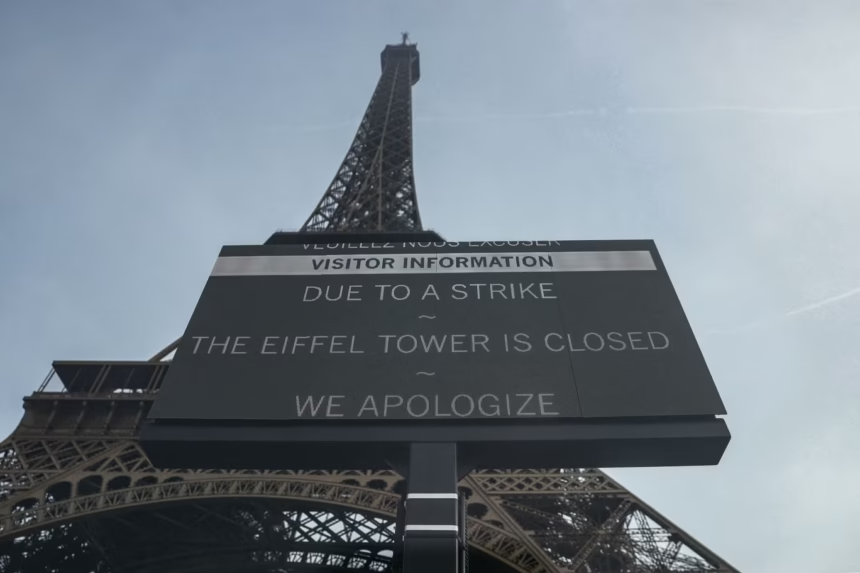The Eiffel Tower was forced to close on Thursday as strikes and protests erupted across more than 200 towns and cities in France, with thousands of demonstrators denouncing government spending cuts and calling for higher taxes on the wealthy.
In Paris, workers, retirees, and students marched from Place d’Italie, while unions demanded Prime Minister Sébastien Lecornu abandon draft austerity measures proposed by his predecessor. These include freezes on social welfare and cuts many fear will further erode the purchasing power of middle- and low-income citizens.
The nationwide strike, organized by France’s eight largest workers’ unions, marked the third major wave of demonstrations in less than a month amid ongoing political turmoil and tense budget talks.
Union leader Sophie Binet, head of the CGT, stressed the urgency: “It’s true, it’s the first time that there are three days of strikes and protests in a month without a government or budget. It shows the level of social anger.”
The French Interior Ministry reported at least 85,000 protesters outside Paris by midday. While high-speed trains ran normally, regional lines and commuting services faced disruptions. Some teachers and healthcare workers also joined the strike.
Despite the disruptions, early figures suggested lower turnout than the massive protests on September 18, when over 500,000 demonstrators filled the streets across France, and unions claimed over 1 million strikers.
The deeply divided French parliament is set to debate the controversial budget bill by the end of the year, while Prime Minister Lecornu has yet to finalize his government team.







